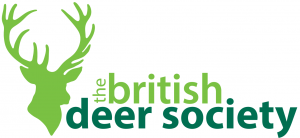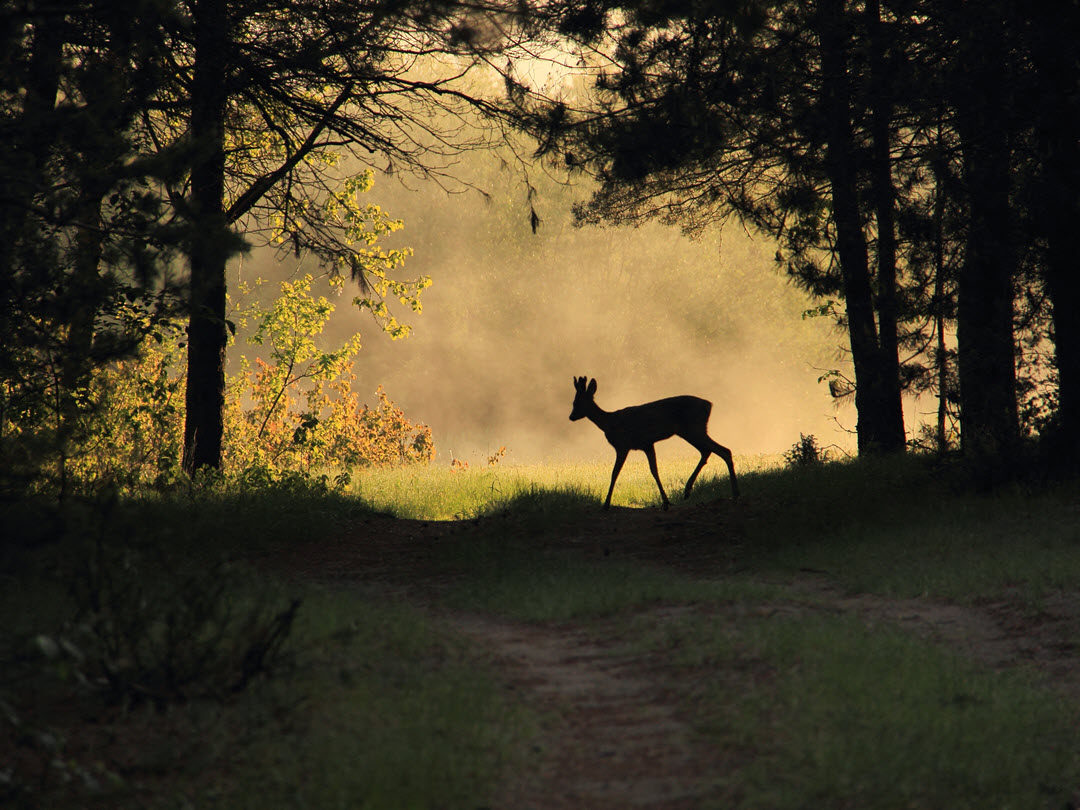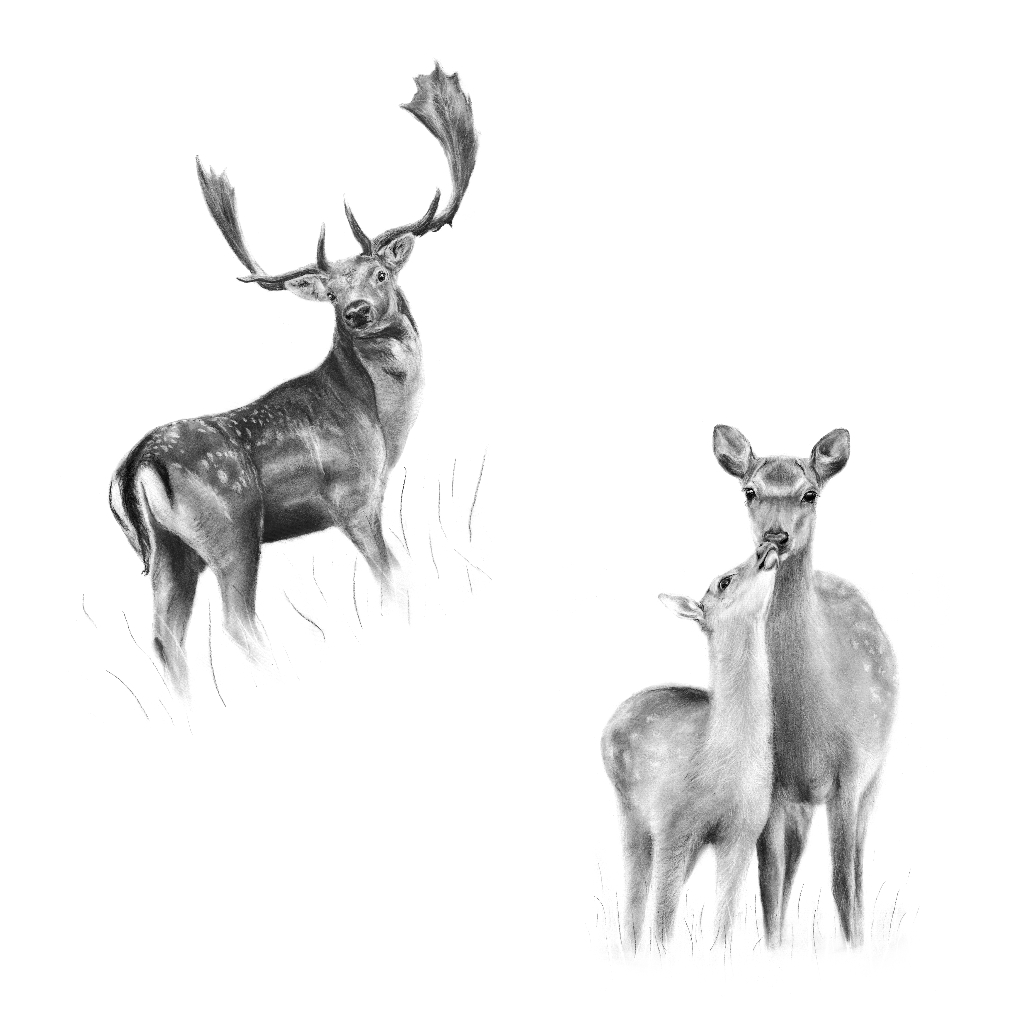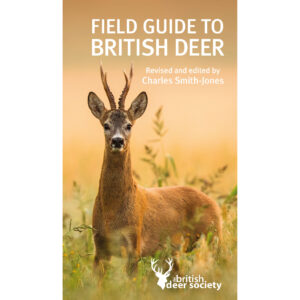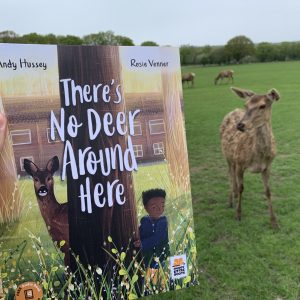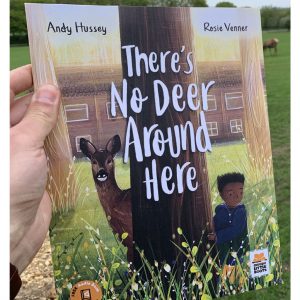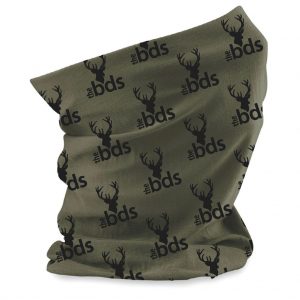WHY YOU MIGHT COME ACROSS A DEAD DEER
The British Deer Society regularly receives enquiries from people who have come across a dead deer and wonder what, if anything, they should do next. Wild deer in the United Kingdom are treated as ownerless under the law and only become property once killed. In general terms the carcase is usually considered to be the property of the landowner concerned.
In many cases the cause of death might not necessarily be sinister and could simply be attributable to natural causes. If in proximity to a road it is possible that the deer might have been involved in a traffic collision before making off and eventually expiring. This often leaves few external signs while causing serious internal injuries.
IMPORTANT HEALTH & SAFETY ADVICE REGARDING FOUND DEAD DEER
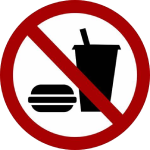
DO NOT EAT THE DEAD DEER OR FEED IT TO YOUR PETS
No deer that is found dead should ever be permitted to pass into the human food chain.
This includes deer that are found as roadkill, or may be suspected of dying as a result of a road-traffic collision.
Wild venison is subject to stringent game meat handling regulations to ensure that it is suitable for human consumption and must always come from animals killed by legal means and then processed appropriately. It is also strongly recommended that unexplained carcases of any kind should also not be fed to dogs, cats or any other domestic pets.
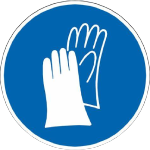
DO NOT HANDLE A CARCASE WITHOUT DISPOSABLE GLOVES
If you must handle a dead deer carcase you should always wear disposable gloves.
Also ensure that you wash your hands carefully afterwards.
Ideally if you follow the guide below you should not have to handle or touch the dead deer carcase at all.
WHAT TO DO WHEN YOU FIND A DEAD DEER: STEP-BY-STEP GUIDE
STEP 1: ENSURE PUBLIC SAFETY
Is the dead deer in a location where it may cause immediate danger to human life?
For example, is the dead deer obstructing a road?
YES: If there is an immediate danger to public safety, call the emergency number (999) and follow the emergency services advice and guidance. Do not touch the deer or move the deer unless told otherwise by the emergency services.
NO: Go to Step 2.
STEP 2: ASSESS THE SITUATION
Without touching the deer, attempt to determine if the cause of death is likely to be from just natural causes, a road collision, potential disease or suspicious activity (such as illegal poaching). Use the guidance box: Identifying A Potential Cause of Death In Deer, to help you.
Do you suspect natural causes/road traffic collision? Go to Step 3.
Do you suspect the deer died of disease? Go to Step 4.
Do you suspect the deer died under suspicious circumstances? Go to Step 5.
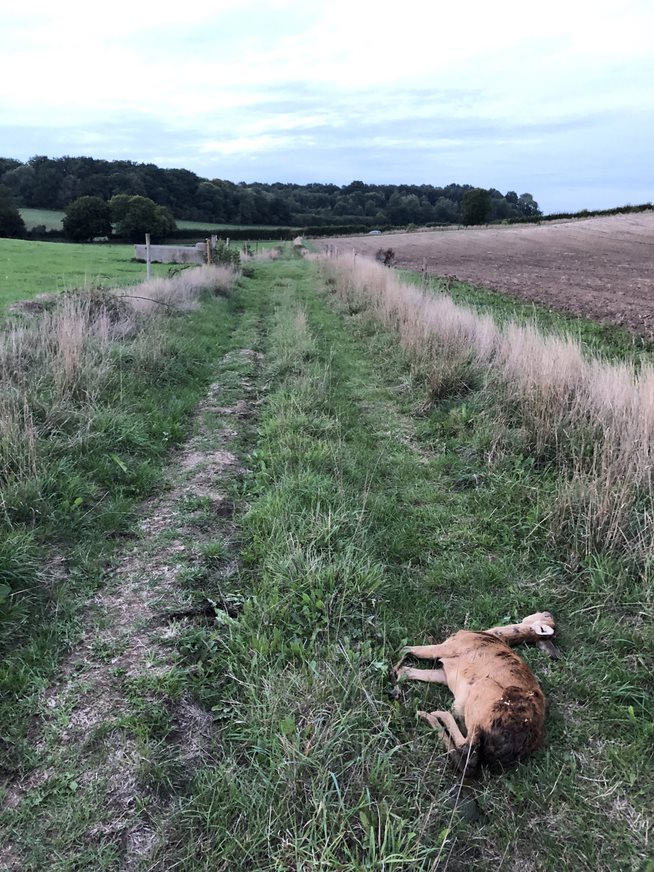
IDENTIFYING A POTENTIAL CAUSE OF DEATH IN DEER
Natural causes/accidental injury:
Many deer die of natural causes or accidental injury. If you find a dead deer near the end of winter or early spring, it may have just failed to make it through the harder months. If there is external damage, this may have been caused by scavengers (such as foxes, badgers, or crows) feeding on the carcase. Go to Step 3.
Road collision:
If the dead deer you find is near a road, it is possible that it was hit by a vehicle. Traffic collisions often cause considerable internal injuries with little sign of external ones. Go to Step 3.
Disease:
Signs of disease might include unusual lumps or tumours, ulcers between the cleaves of the feet or in the mouth, bleeding from the mouth, ears, nose or anal area, or the deer being extremely thin. Go to Step 4.
Poaching/Wildlife Crime:
Poachers have little regard for deer or the law and often employ cruel and illegal methods to kill deer. Unless there are obvious dog bite or gunshot injuries, or there is still part of a snare/trap attached to the deer, it may be difficult to identify if poaching occurred. If you do suspect poaching, please go to Step 5.
STEP 3: DEAD DEER CARCASE DISPOSAL & REPORTING DEAD DEER
If you suspect a deer died of natural causes, a road traffic collision or similar circumstances then depending on where the deer is, it can be disposed of in the following ways:
If the dead deer is in a park, on or beside a public road, or in a similar public place, it would usually be most appropriate to inform the responsible authority or the waste disposal department of your local council.
If the dead deer is in your garden or on other privately-owned ground, arrangements should be made for its removal and disposal by burial or incineration. The waste disposal department of your local council may be able to offer appropriate advice or might, under certain circumstances, be able to arrange for removal and/or disposal. Alternately, a local livestock farmer may be able to assist you.
If the dead deer is on private land or farmed land, advise the landowner.
Unless disease (see Step 4) or poaching (see Step 5) is the suspected cause of death there is no need to report the death of a wild deer you have found.
STEP 4: WHAT TO DO IF YOU SUSPECT DISEASE IN A DEAD DEER?
If you have any suspicions that the deer might have died from a notifiable disease do not handle or move it.
If possible, cover the dead deer to prevent access by scavenging animals and birds, and contact the Animal and Plant Health Agency to report it. APHA are part of Defra and are responsible for identifying and controlling disease in both livestock and wildlife, and actively welcome all enquiries. APHA will advise, investigate, and take action as necessary.
It is a legal requirement that anyone suspecting a notifiable disease in any animal, bird or plant should report it.
Read more: Notifiable diseases in animals (GOV.UK).
As far as deer are concerned, notifiable diseases can include, among others, foot and mouth disease, bovine tuberculosis, brucellosis and bluetongue. Suspicious signs might include unusual lumps or tumours, ulcers between the cleaves of the feet or in the mouth, bleeding from any orifice, or excessive emaciation.
STEP 5: WHAT TO DO IF YOU SUSPECT DEER POACHING OR WILDLIFE CRIME
If you have found a dead deer and have any suspicion that poaching activity has taken place you should consider notifying the police.
Many constabularies now have a dedicated Wildlife Crime Officer; you can contact them by calling the non-emergency number 101.
Most also have web pages dedicated to wildlife crime which offer further advice.
If you actually witness poaching in progress, or what you believe to be armed trespass, it would be more appropriate to call 999 instead.
For additional advice see: Deer poaching and wildlife crime in the UK
PLEASE HELP US TO KEEP EDUCATING & INSPIRING EVERYONE ABOUT DEER FOR FREE
If you have found our free resources about deer in the UK useful then we’d really appreciate your support in helping us keep them free for all! How can you support our work?



